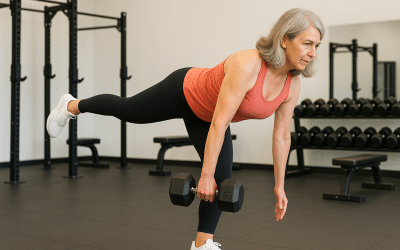It’s not your imagination—losing weight can be a lot harder for women, especially as we age. Hormones, metabolism, muscle loss, and a history of pregnancy can all play a part. Understanding why can help us approach weight loss with more patience and a smarter strategy.
Table of Contents
Hormones Shift with Age
Hormones like estrogen and progesterone are powerful regulators of metabolism and fat storage. During perimenopause and menopause, estrogen levels drop, causing the body to store more fat around the belly. These hormonal changes also affect our hunger signals and cravings, making it harder to stick to a balanced diet.
Muscle Loss Lowers Metabolism
Men tend to lose weight faster than women because they naturally have more muscle mass, which burns more calories. Women start losing muscle in their 30s, and this decline accelerates after 50. Less muscle means a slower metabolism, which is why you might feel like you’re gaining weight even if your diet hasn’t changed.
Pregnancy Leaves Lasting Changes
For many women, pregnancy changes the body’s fat distribution permanently. Hormones like prolactin, which increase during breastfeeding, can cause the body to hold onto fat. It’s common for weight gained during pregnancy to persist, sometimes for years, due to these hormonal shifts.
Stronger Food Cravings
Women’s brains often respond more intensely to food cues than men’s, making cravings harder to resist. Stress also plays a big role here, as it raises cortisol levels, signaling your body to hold onto fat. Emotional eating can become a coping mechanism, further complicating weight loss efforts.
Thyroid Issues and PCOS
Women are much more likely than men to experience thyroid disorders, like hypothyroidism, which slow metabolism and make weight loss difficult. Conditions like Polycystic Ovarian Syndrome (PCOS) can also lead to weight gain and insulin resistance, affecting up to 12% of women.
How to Approach Weight Loss Differently
- Focus on Strength Training: Building muscle is one of the most effective ways to boost metabolism and counteract the muscle loss that comes with age.
- Eat More Protein: Prioritize high-quality protein to support muscle growth and help manage hunger.
- Manage Stress: Find ways to reduce stress, whether it’s through mindfulness, gentle movement, or simply getting outside for a walk.
- Pay Attention to Your Body: Notice how you feel at different times of the month and adjust your workouts and nutrition accordingly.
- Choose a Tailored Program: Generic diet and exercise plans don’t account for hormonal changes or joint issues. Look for a program that’s specifically designed for women over 50.
Weight loss isn’t impossible—it just requires a different approach. With the right strategy, you can work with your body’s unique needs instead of fighting against them. Your body has changed, but that doesn’t mean you can’t get stronger, leaner, and healthier than ever before.




